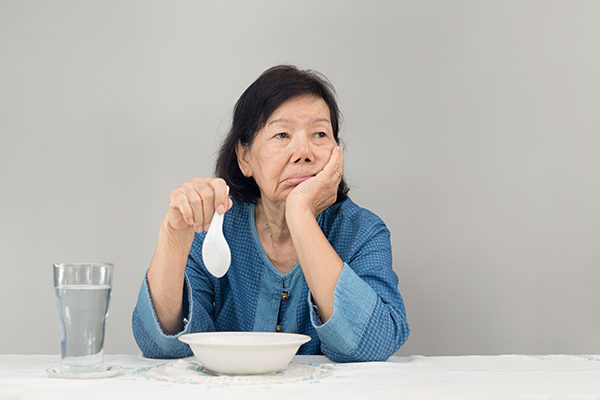 Remember weekend dinners at Grandma’s, whenever the whole family came together round the table to have a hearty meal, conversations, and laughter? Unfortunately, with many families now living far away from their older members of the family, along with so many urgent needs pulling us in numerous directions, it is difficult to continue this tradition – and it may be one among the numerous factors adding to the dramatic rise in senior malnutrition.
Remember weekend dinners at Grandma’s, whenever the whole family came together round the table to have a hearty meal, conversations, and laughter? Unfortunately, with many families now living far away from their older members of the family, along with so many urgent needs pulling us in numerous directions, it is difficult to continue this tradition – and it may be one among the numerous factors adding to the dramatic rise in senior malnutrition.
Up to 25% of all senior citizens in the U.S. are malnourished, leading to critical health problems. For many older adults who live alone, they simply are not inspired to cook properly for themselves. Others are going through grief, depression, anxiety, cognitive difficulties, poverty, medication side effects, and more.
Whatever the underlying factors, seniors who are malnourished experience compromised immune systems, longer and much more complicated hospital stays, readmissions, and earlier mortality. And revealing malnutrition isn’t as simple as paying attention to weight loss in a senior; people who appear in good health or perhaps even overweight may also be battling with malnourishment issues.
One main aspect of detecting senior malnutrition and then dealing with it lies in the hands of the healthcare community. Seniors should always be screened for nutrition issues by their primary care doctor, and a dietary plan put in place. When hospitalized, hospital personnel should also look into any potential nutritional requirements, and include their findings and a proposed course of action in discharge paperwork to be reviewed with both caregivers and the senior’s doctor.
Family caregivers also play an important role in ensuring the nutritional needs of the senior loved ones are met, as well as in helping to uncover the root cause if problems are found. For example, if financial concerns are preventing the senior from maintaining a healthier eating plan, she or he may be eligible for the Supplemental Nutrition Assistance Program. Currently, up to three out of five older adults who do qualify for the program are not making use of its benefits.
It’s essential to pay attention to signs that your elderly loved one might not be staying with a healthier diet, and also to discuss any concerns with the senior’s doctor. And call on Generations at Home for help in establishing better nutritional habits for the senior loved one. We could plan and prepare balanced meals and pick up groceries to make certain there are healthy food options in the fridge and pantry at all times. Our caregivers also provide friendly companionship, which always makes mealtime more pleasant. Call us at 727-940-3414 or contact us online to learn more about how we can help you and your family’s Pinellas County caregiving needs.







